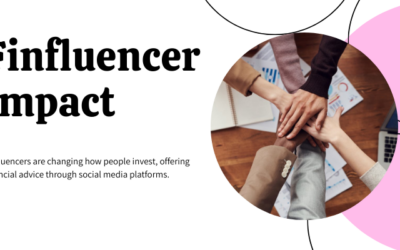Starting your career in finance can be both exciting and challenging. The industry evolves rapidly, influenced by new technologies, market trends, and client needs. To succeed, you need more than technical skills—you need resilience. A resilient career is built on adaptability, continuous learning, and strategic planning. Here’s how to lay a strong foundation for long-term success.
1. Commit to Lifelong Learning
Your education doesn’t end when you graduate. In finance, staying current with industry developments and expanding your skill set are crucial for career growth.
- Start with Certifications: Earning a CFA, CPA, or other industry-recognized certification early in your career demonstrates your commitment to excellence and sets you apart from your peers.
- Explore New Technologies: Tools like Excel, Python, and Power BI are becoming essential for financial analysis and modeling. Learning these early gives you a competitive edge.
- Stay Informed: Follow industry news through platforms like Bloomberg or The Wall Street Journal and listen to finance-related podcasts.
Pro Tip: Dedicate just 15 minutes a day to learning something new—over time, it adds up to substantial growth.
2. Build a Strong Network
Networking may seem intimidating, but it’s one of the most valuable tools for early-career professionals. A strong network can connect you with mentors, new opportunities, and industry insights.
- Attend Events: Join finance-related meetups, webinars, or professional association events to meet others in your field.
- Leverage LinkedIn: Build your professional profile, connect with colleagues, and engage with industry content.
- Seek Mentorship: A mentor can guide you through career decisions, offer feedback, and share their experiences.
Pro Tip: When networking, focus on building genuine relationships rather than just collecting contacts.
3. Embrace Change and Adaptability
The finance world is unpredictable. Early in your career, you may find yourself facing shifting priorities, unexpected challenges, or new technologies. Learning to adapt is key.
- Be Open to Opportunities: Say yes to new projects, even if they feel outside your comfort zone. These experiences can help you grow.
- Learn from Challenges: Treat mistakes and setbacks as learning opportunities rather than failures.
- Explore Emerging Trends: Keep an eye on areas like fintech, ESG investing, or cryptocurrency to stay ahead of the curve.
Pro Tip: Flexibility and a willingness to learn can turn challenges into stepping stones for advancement.
4. Focus on Soft Skills
While technical skills are essential, soft skills like communication, teamwork, and emotional intelligence are just as important, especially early in your career.
- Communicate Clearly: Learn to present complex financial concepts in a way that’s easy for clients or colleagues to understand.
- Collaborate Effectively: Build strong relationships with team members by being dependable and approachable.
- Develop Emotional Intelligence: Understanding and managing your emotions—and empathizing with others—can make you a stronger team player.
Pro Tip: Ask for feedback from peers and supervisors to identify areas where you can improve your interpersonal skills.
5. Plan for Your Career Growth
It’s never too early to start thinking about where you want your career to go. Setting goals now helps you focus your efforts and seize the right opportunities.
- Set Short-Term and Long-Term Goals: Identify where you want to be in one year, five years, and beyond. Use these goals to guide your choices.
- Diversify Your Experience: Seek roles or projects that expose you to different areas of finance, like risk management, corporate finance, or investment analysis.
- Manage Your Personal Finances: A strong personal financial foundation ensures you’re ready for unexpected life changes or career moves.
Pro Tip: Revisit your goals annually and adjust them as your interests and the industry evolve.
A Lifetime of Success
As an early-career professional, building resilience will set you up for a lifetime of success in finance. By committing to learning, developing strong networks, staying adaptable, honing your soft skills, and planning your growth strategically, you can create a career that not only withstands change but thrives in it.
Start today by taking small steps toward these goals—your future self will thank you. Remember, a resilient career isn’t just about surviving challenges; it’s about thriving in a constantly evolving industry.




